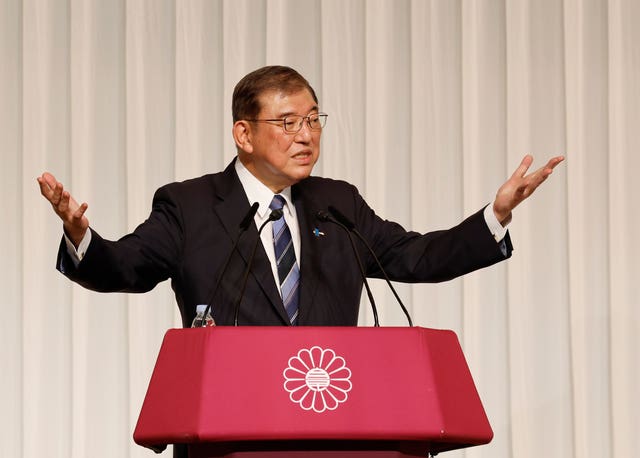Japan’s likely next leader says he will call election for October 27
Shigeru Ishiba is expected to succeed the outgoing Fumio Kishida on Tuesday.

Shigeru Ishiba, the head of Japan’s governing party, has said he plans to call a parliamentary election for October 27 after he is formally elected as prime minister on Tuesday.
Mr Ishiba was elected party leader to succeed outgoing leader Fumio Kishida in a party vote on Friday.
He is assured to be elected as next prime minister because the Liberal Democratic Party (LDP) and its ruling coalition controls parliament.
Mr Ishiba mentioned the election date as he announced his top party leadership line-up ahead of forming his cabinet.
The plan is not official since he is not prime minister yet, but Mr Ishiba said he mentioned the date early for the logistical convenience of those who have to prepare on relatively short notice.

Considered a defence policy expert, Mr Ishiba secured a come-from-behind win against Economic Security Minister Sanae Takaichi, a staunch conservative who hoped to become the country’s first female prime minister, in Friday’s vote.
The LDP has had a nearly unbroken tenure governing Japan since the Second World War.
The party members may have seen Mr Ishiba’s more centrist views as crucial in pushing back challenges by the liberal-leaning opposition and winning voter support as the party reels from corruption scandals that drove down outgoing Mr Kishida’s popularity.
Mr Ishiba is a defence and security expert and has proposed an Asian version of Nato military alliance. He has also advocated for more equal Japan-US security alliance, including joint management of US bases in Japan and having training bases for Japanese forces in America.
On Friday, Mr Ishiba stressed Japan needs to reinforce its security, noting recent violations of Japanese airspace by Russian and Chinese warplanes and repeated missile launches by North Korea.
He pledged to continue Mr Kishida’s economic policy aimed at pulling Japan out of deflation and achieving real salary increases, while tackling challenges such as Japan’s declining birthrate and population and resilience to natural disasters.
Mr Ishiba, first elected to parliament in 1986, has served as defence minister, agriculture minister and in other key Cabinet posts, and was LDP secretary general under former leader Shinzo Abe.





